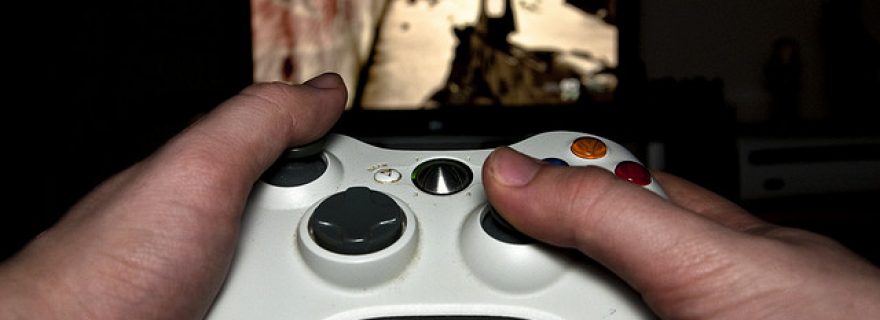Video games make you better at multitasking?!
Video games are bad and make you aggressive - is the idea some people might have. However, as it turns out, video game players are actually better in multitasking, and are just as impulsive as non video game players!
There is a constantly growing interest in developing efficient methods to enhance cognitive functioning and/or to ameliorate cognitive deficits. One particular line of research focuses on the possibly cognitive enhancing effects that action video game (AVG) playing may have on game players. Interestingly, AVGs, especially first person shooter games, require gamers to develop different action control strategies to rapidly react to fast moving visual and auditory stimuli, and to flexibly adapt their behaviour to the ever-changing context.
In our recent study, we investigated whether and to what extent experience with such videogames is associated with enhanced performance on cognitive control tasks that require similar abilities. Following previous studies participants who reported playing a minimum of 5h/week of FPS AVGs, over the last year were defined as AVGPs. Participants assigned to the AVGP group reported to play FPS games such as Call of Duty, Unreal Tournament, Half-Life 2, and Battlefield 2 and later versions. All of these games are situated in a 3D environment and require frequent updating between multiple tasks and stimuli. 18 matched participants who reported little to no AVG experience (i.e., one or fewer hours per week on average of action videogame play) were selected to form the NVGP group.
As such, 18 experienced action videogame-players (AVGPs) and 18 individuals with little to no videogame experience (NVGPs) performed a stop-change paradigm that provides a relatively well-established diagnostic measure of multitasking and response inhibition. More specifically, this paradigm measures how fast people are in inhibiting a response, in stopping one action and executing another one simultaneously, and in executing the second action when you get some time to stop the first one.
Our results replicated previous findings: AVGPs showed higher efficiency in response execution, but no changes in response inhibition (i.e. inhibitory control), as compared to NVGPs. More importantly, compared to NVGPs, AVGPs showed enhanced multitasking when an interruption (stop) and a change towards an alternative response were required simultaneously, as well as when such a change had to occur after the completion of the stop process. Our findings suggest that playing AVGs is associated with enhanced multitasking abut does not affect inhibitory control.
This last finding is important from two perspectives: On the one hand, the fact that AVGPs are not better than NVGPs in inhibitory control means that the potential beneficial effects on cognitive control associated with gaming experience do not transfer to all cognitive functions. It would be valuable for future studies to shed light on why this is the case. On the other hand, the fact that AVGPs are not worse than NVGPs in inhibitory control means that, at least our study, does not provide any empirical support for the claim that AVGPs are more impulsive, antisocial, or aggressive than non-gamers.
Steenbergen, L., Sellaro, R., Stock, A-K., Beste, C., Colzato, L.S. (2015). Action video gaming and cognitive control: playing first person shooter games is associated with improved action cascading but not inhibition. Plos One 10(12): e0144364.



0 Comments